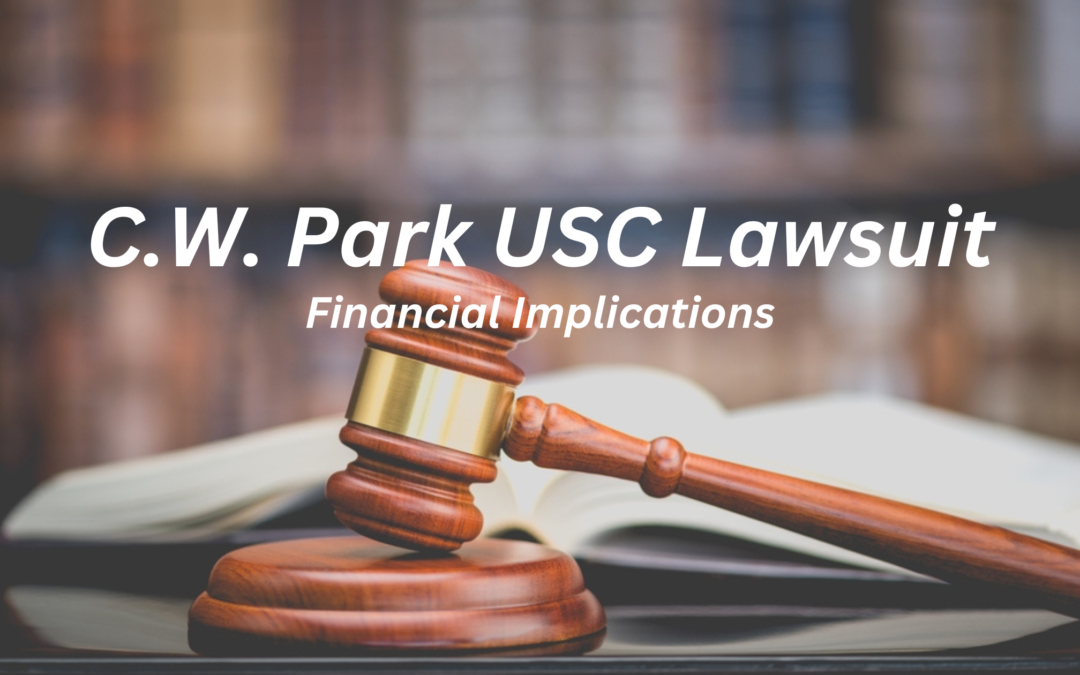The lawsuit that university professor C.W. Park USC filed is closely watched by a lot of people, including those from financial circles. Professor Choong Whan Park USC sued the university for race discrimination, wrongful termination, and retaliatory conduct. The economic and image implications are the major factors in this matter.
Background of the Lawsuit
Allegations and Claims
As per the lawsuit, ‘Park’, who is of South Korean origin argues that there was discrimination and an unfriendly climate toward work while he was there. He talks about being denied promotions, and salary increases among others despite performing better than some white employees that are less qualified than him of such kind might have adverse financial implications for the University of Southern California should this information be verified because awards in terms of compensation would have to be made and litigation costs met.
USC’s Response
USC has totally disagreed with all of the accusations against them, claiming that his sacking had nothing to do with the fact that he was Asian or his Korean descent. The learning establishment advocates for diversity and inclusivity by stressing out that Park’s accusations are not true. It is important for this defense strategy to protect its financial and reputational interests.
Legal Costs and Financial Strain
High-priced lawsuits often have a problem with litigation costs. When it comes to legal fees and/or court judgments, then the amount of money spent on them could be huge. This means that if the University of Southern California were under attack by anyone who could afford many lawyers running around making life difficult just in order not manage their accounts at all, they would spend lots on this process. This may adversely affect their solvency by straining their finances and requiring reorganization within the existing frameworks
Impact on Donations and Funding
Having more donations and financial support is influenced by respect for schools. C. W. Park is being alleged to have engaged in some unethical activities thus the image of the institution is questionable. This might make it impossible for prospective donors to give scholarships or help run other projects.
Broader Implications for Higher Education
The legal case has given a rise to wider conversations on racial bias at work and punishment for such conduct within the educational domain. There are various institutions all over the nation that are currently considering their rules aiming at warding off comparable lawful acts against them as well. Consequently, such a change might be accompanied by higher payments resulting from the need for enforcing greater fellowship schemes including ethnicity.
Insurance and Risk Management
Typically, universities are insured against legal liabilities, but the court case may result in increased premiums or lower limits of indemnity. As such, insurance companies might increase their risk level and compel banks to reconsider the ways to handle risks.
Long-term Financial Health
Institutions like USC do not only suffer from immediate legal costs but they also suffer long term damage to their reputation which then affects their financial health. For instant student intake, hiring professors among other faculties and general wellbeing may be affected. Sustained loss in money terms as may arise from protracted court cases has implications on how well an institution performs its different programs.
Institutional Reforms
It Is most likely that USC and other universities will put even more strict policies concerning discrimination and harassment due to the claims. All these renovations, not to mention the fact that they are inevitable, will add some more charges for training programs through policy formulation strategies up to provision of adequate reinforcement systems for both parties thus posing financial implications for education facilities.
Economic Impact on Stakeholders
Economic implications reach further from USC stakeholders, which include pupils, professors, as well as past students, with probable decreases in the number of students enrolling due to bad media exposure lowering school fee income while tutors could be forced out searching for talents elsewhere plus recruitment being made even more costly.
Financial Accountability
The C.W. Park’s lawsuit stresses financial accountability and transparency in academic institutions. To ensure that there remains no discrimination whatsoever in the financial transactions that involve promotions and salary apportionments at universities. It also is essential that these institutions keep their dealings open which helps build understanding between them and others who might have some interests in their resources and at the same time ensure both continuous financial stability.
Corporate Governance
Preventing and addressing allegations of discrimination are crucial tasks of effective corporate governance. Universities should adopt full governance frameworks that promote ethical behavior and responsibility for this task. Running regular audits, transparent decision-making processes and strong complaints resolution mechanisms is part of the deal.
Investor Confidence
Investor confidence is essential for publicly funded institutions. Investors and financial analysts may closely examine the continuing lawsuit, which could impact stock performance and funding availability. Financial stability must be upheld by finding a way to restore confidence in the solution.
Legal Precedents
The impact of the lawsuit by C.W. Park on higher education could be significant in terms of legal precedents. Should the court decide in favor of Park’s case, this might result in other universities facing similar lawsuits and therefore it would force them into adhering to legal standards on one hand while enhancing their defense mechanisms on another hand. On the contrary, a judgment in favor of the University of south California might entrench the status quo but at the same time create an impetus for more drastic changes.
Also Read: Dr. Aaron Wohl Arrested: A Case with Financial Implications
Conclusion and Future Outlook
Litmus test with financial and ethical overtones that, rather than simply a lawsuit carried out in court of law, the lawsuit against C.W Park at USC is. How this case plays out could cause major changes in how colleges deal with allegations of discrimination and run their financial affairs. The effects of these lawsuits are likely to extend beyond the courtroom into policy-making realms, financial planning matters as well as establishing reputation trends among respective higher education institutions for many more years to come.

